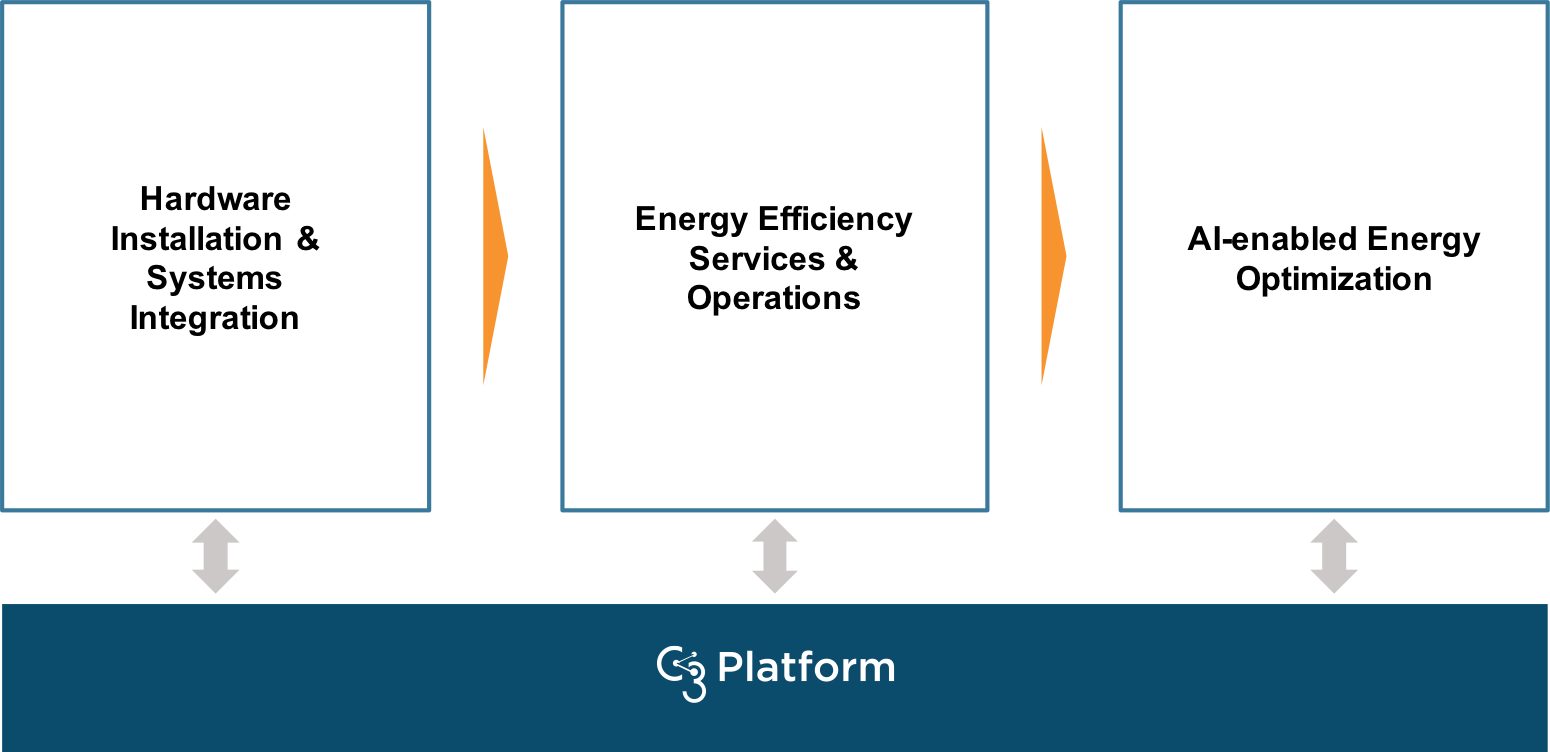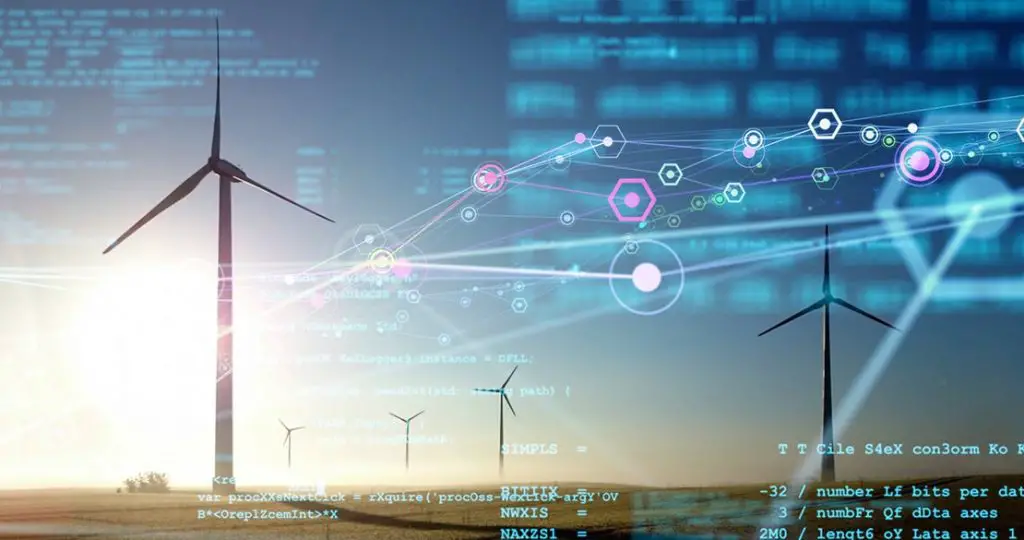Artificial Intelligence (AI) plays a transformative role in the management of renewable energy sources, offering immense potential to enhance efficiency, optimize utilization, and facilitate seamless integration into modern energy systems. Here are key aspects highlighting the role of AI in renewable energy management:

- Renewable Resource Forecasting:
AI empowers accurate and timely forecasting of renewable energy generation. Through sophisticated algorithms and data analysis techniques, AI models ingest historical data, weather patterns, and other relevant parameters to predict the output of solar, wind, and other renewable energy sources. These forecasts help energy providers optimize their operations, ensuring a reliable supply of electricity and minimizing reliance on conventional fossil fuels.

- Energy Storage Optimization:
AI optimizes the performance of energy storage systems, such as batteries, to efficiently store excess energy generated from renewable sources. AI algorithms analyze energy demand patterns, grid stability requirements, and renewable energy generation forecasts to determine the optimal charging and discharging schedules for energy storage systems. This optimization maximizes the utilization of stored energy, reduces grid congestion, and supports a more resilient energy infrastructure.

- Grid Integration and Load Balancing:
As the share of renewable energy increases in the energy mix, AI facilitates seamless integration with traditional grid infrastructure and ensures reliable load balancing. AI-powered systems monitor real-time energy supply and demand, predict fluctuations, and adjust the output of renewable energy sources to match the grid’s needs. This integration enables grid operators to maintain a stable and efficient distribution of electricity, minimizing the risk of blackouts or imbalances.
- Renewable Energy Asset Management:
AI enhances the management and maintenance of renewable energy assets, such as solar panels, wind turbines, and hydropower systems. AI systems monitor the performance of these assets in real-time, detecting anomalies, predicting potential failures, and optimizing maintenance schedules. Early detection of issues minimizes downtime, extends asset lifespan, and maximizes energy generation efficiency.
- Demand Response and Energy Efficiency:
AI contributes to optimizing energy consumption patterns and improving energy efficiency. By analyzing historical data, appliance usage, and user preferences, AI systems develop personalized recommendations for energy conservation and efficient energy usage for residential and commercial buildings. This leads to reduced energy demand, decreased carbon emissions, and cost savings for consumers.
- Policy and Market Analysis:
AI aids policymakers and energy market participants in analyzing complex energy data and trends. AI-powered tools facilitate the evaluation of renewable energy policies, assessing their effectiveness and identifying areas for improvement. AI also enables comprehensive market analysis, supporting decisions related to renewable energy investment, pricing strategies, and regulatory frameworks.
- Smart Cities and Microgrids:
AI plays a crucial role in the development and management of smart cities and microgrids, empowering efficient utilization of renewable energy resources. AI algorithms optimize energy flows, integrate distributed energy sources, and manage energy storage systems within smart grids, leading to increased energy independence and reduced reliance on centralized energy sources.
In conclusion, AI has emerged as a game-changer in the management of renewable energy sources, enabling accurate forecasting, optimizing energy storage, ensuring grid integration, enhancing asset management, promoting energy efficiency, and supporting policy analysis. As the world progresses towards a sustainable and decarbonized energy future, AI will continue to play an increasingly vital role in unlocking the full potential of renewable energy and accelerating the transition to a cleaner and greener energy landscape.# The Role of AI in Renewable Energy Management
Executive Summary
Artificial Intelligence (AI) is rapidly transforming the world as we know it, and the energy sector is no exception. AI technologies have the potential to revolutionize the way we generate, distribute, and consume energy, with a particular emphasis on renewable energy sources. This article explores the myriad ways in which AI is being employed to optimize renewable energy management, examining five key subtopics:
-
AI-Powered Forecasting and Predictive Analytics:
- AI algorithms can analyze vast amounts of historical and real-time data to forecast renewable energy generation accurately.
- Prediction of energy demand patterns using AI helps grid operators balance supply and demand.
- AI can also anticipate equipment failures and grid outages.
-
AI-Optimized Renewables Integration:
- AI optimizes the integration of renewable energy sources into the grid, ensuring stability and reliability.
- AI algorithms help energy providers blend renewable energy sources effectively with conventional ones.
- AI-driven microgrid control optimizes energy distribution from renewable sources.
-
AI-Enabled Energy Storage Management:
- AI algorithms optimize the charging and discharging cycles of grid batteries.
- AI-based energy storage management systems enhance the lifecycle of batteries.
- AI helps predict energy storage needs and manages the flow of energy to and from storage facilities.
-
Remote Monitoring and AI-Enhanced Predictive Maintenance:
- AI-powered monitoring systems detect anomalies in renewable energy systems promptly.
- AI algorithms analyze data from sensors to predict potential failures and schedule maintenance.
- Predictive maintenance reduces downtime and optimizes the performance of renewable assets.
-
Virtual Power Plants (VPP) Enabled by AI:
- AI helps aggregate and control distributed energy resources like rooftop solar panels and electric vehicles.
- AI optimizes the dispatch of VPPs based on real-time demand and supply conditions.
- AI-driven VPPs provide grid operators with additional flexibility and resilience.
Conclusion
The integration of AI into renewable energy management holds transformative potential. AI technologies empower energy providers to maximize the utilization of renewable energy sources, improve grid stability, enhance energy storage efficiency, facilitate predictive maintenance, and leverage Virtual Power Plants effectively. As AI advances, its role in renewable energy management will only become more profound, driving the transition to a cleaner and more sustainable energy future.
Keyword Phrase Tags
- Artificial Intelligence (AI)
- Renewable Energy Management
- Energy Efficiency
- Grid Optimization
- Virtual Power Plants


The integration of AI in renewable energy manaement is a veritable game-changer. Those who proactively embrace this technology will be the fronteers and innovators of a more sustainable future.
While the potential benefits of AI are apparent, the ethical and environmental implications need to be thoroughly considered and addressed. Simply adopting AI for the sake of it may lead to unforeseen consequences.
The integration of AI into renewable energy management is something I’m keenon in learning more about. Are there any specific case studies or pilot projects that showcase its successful implementation?
So, essentially, we’re using advanced technology to manage renewable energy sources that are supposed to be ‘natural’ and ‘sustainable’. A bit ironic, don’t you find?
Sure, AI can optimize and predict stuff. But let’s not forget the good old human factor and the complexities of the energy market. It’s not all about algorithms and fancy tech.
AI in renewable energy? Sounds like a recipe for a robot apocalypse where our solar panels start taking over the grid. I’ll stick to my trusty windmills for now.
I’m curious about the specific AI algorithms and techniques used in renewable energy management. Can you provide some insights into which methods have proven to be particularly effective?
While the potential of AI is vast, it’s important to approach its integration with a balanced perspective. Let’s not rush into wholesale adoption but rather proceed with careful consideration and a focus on maximizing its benefits.
The article presents a rosy picture of AI’s role in renewable energy. However, we shouldn’t underestimate the challenges of implementation, data quality, and ensuring that AI systems align with real-world constraints.